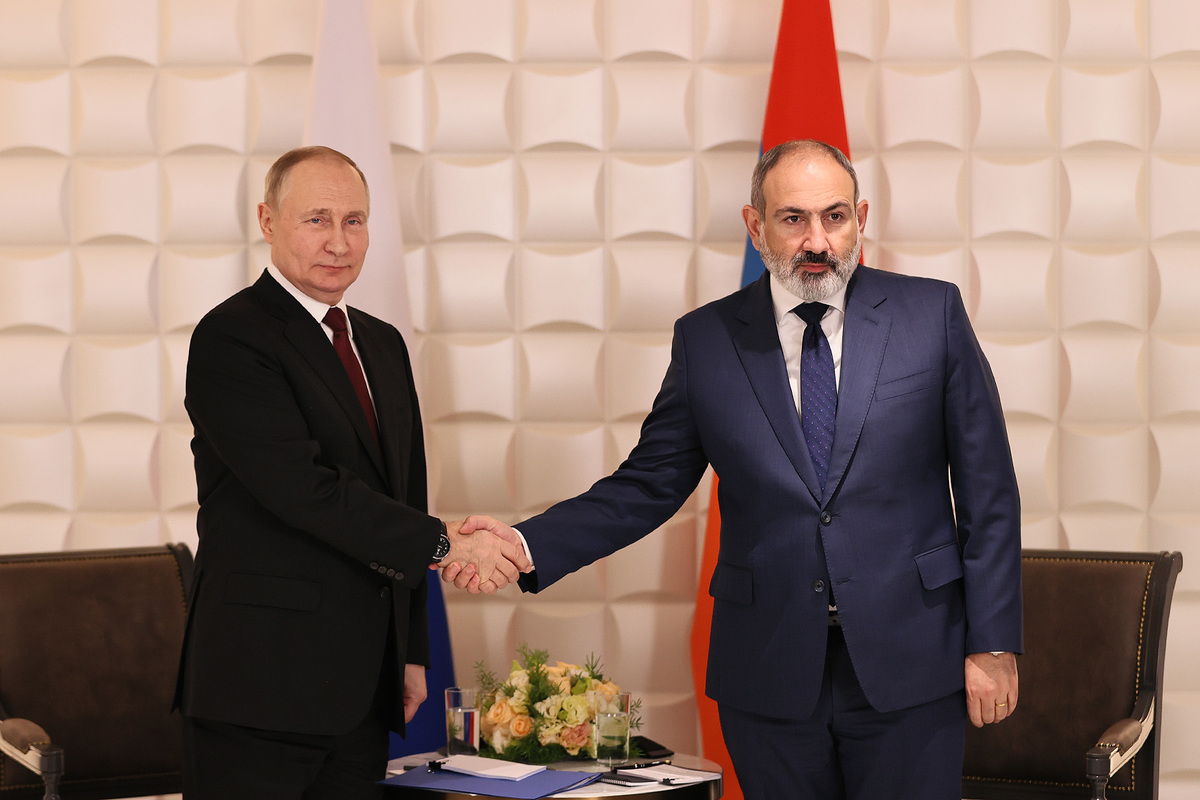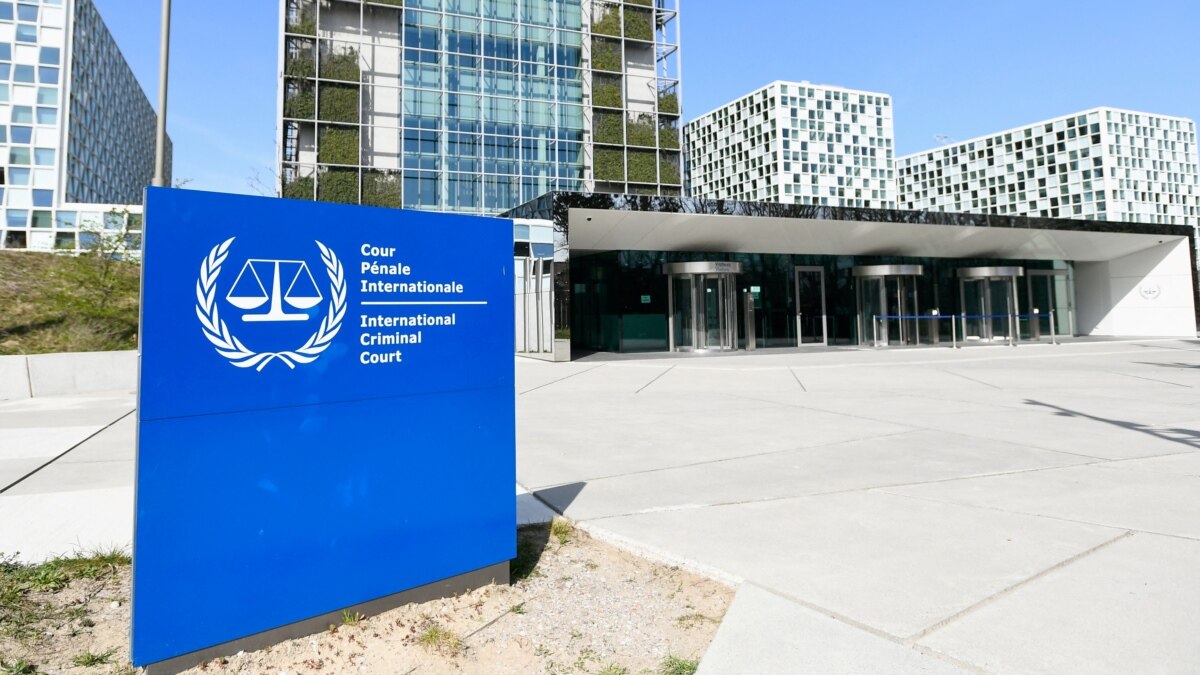The Armenian Parliament ratifies the Rome Statute. What was it for?
Armenia ratifies the Rome Statute
The Armenian Parliament has ratified the Rome Statute, which the government approved and sent to the Parliament in December 2022. Opposition factions “I Have Honor” and “Hayastan” (Armenia) voted against it, with a total of 22 MPs . The bill was approved by 60 votes from the ruling team.
Upon notice of ratification by the UN Secretary General, Armenia will become a full member of the International Criminal Court and will be able to file lawsuits against individuals who committed war crimes, crimes against humanity and genocide on its territory.
Official Yerevan has repeatedly stated that it intended to ratify the Rome Statute in order to be able to demand accountability for crimes committed by Azerbaijani soldiers on Armenia’s sovereign territory and to prevent new crimes. However, the issue of ratification became a hotly debated topic after the ICC issued an arrest warrant for the Russian president. This court ruling obliges countries that have ratified the statute to hand Putin over to the court if he is on their territory.
Russia has reacted extremely harshly to Armenia’s intention to ratify the document. And Armenia’s representative for international and legal affairs, Yeghishe Kirakosyan, repeatedly explained even before ratification that “there are decisions” on the issue of Putin’s arrest. In fact, the Russian president will not be threatened with arrest on Armenian territory.
Of the post-Soviet countries, Georgia and Tajikistan have ratified the Rome Statute. Armenia has often recalled that Russia had no problems when the document was ratified in Tajikistan.
What will happen if Putin goes to Armenia?
The Parliamentary Committee on State and Legal Affairs approved the draft ratification of the Rome Statute on September 28. At that time, Yeghishe Kirakosyan explained to journalists that the Russian President may not fear a visit to Armenia after ratification. He emphasized that “incumbent heads of state have immunity” and explained what additional “solutions” there might be:
“Our Russian colleagues have been offered solutions based on the 2nd part of the 96th article of the Rome Statute. This implies the signing of a bilateral agreement, which allows for the creation of certain guarantees for the concerns that the partner states have.”
According to Kirakosyan, Armenia provided the text to its Russian counterparts several months ago and is still waiting for their response.
However, after ratification, Russian presidential spokesman Dmitry Peskov reiterated that the Kremlin considers Armenia’s decision a “wrong step” in terms of bilateral relations, and Moscow would not want Russian President Putin to ever have to cancel a visit to Armenia.
“Armenia will receive additional guarantees.”
Speaking in the parliament, Armenia’s representative for international and legal affairs emphasized: by ratifying the Rome Statute, Armenia receives guarantees that any grave crime committed on its sovereign territory will fall under the jurisdiction of the International Criminal Court.
“The goal is to achieve accountability for war crimes and crimes against humanity committed by Azerbaijani military personnel,” Yeghishe Kirakosyan said.
He is confident that ratification of the statute and recognition of the ICC jurisdiction will also have “a significant preventive effect, excluding the commission of grave crimes against humanity on the territory of the country.”
According to him, from a long-term point of view, additional guarantees are created for Armenia, but the bodies controlling the execution of decisions are imperfect, both in the case of the ECtHR and the UN International Court of Justice, as well as the ICC.
“In the case of the ICC, the efficiency may be higher, because unlike the other two courts, which speak about the responsibility of the state, the ICC’s decisions deal with the criminalization of individuals.”
Azerbaijan has not ratified the statute. Will the perpetrators be held accountable?
Yeghishe Kirakosyan gave a positive answer to this question of the deputies. He specified that if a citizen of a country that has not ratified the statute commits a crime on the territory of a country that has ratified the statute, he is still “subject to the jurisdiction of the court”.
According to the lawyer, a state that has not ratified the statute, such as Azerbaijan, is not obliged to cooperate with the ICC:
“But all states that have ratified the Rome Statute are obliged to cooperate with the court and, if necessary, hand over to the court persons who have committed a crime.”
“Forced deportation of NK Armenians also under ICC jurisdiction”
In addition to ratifying the Rome Statute, Armenia recognized the jurisdiction of the International Criminal Court retroactively from 10 May 2021. This is because the Azerbaijani Armed Forces have since advanced several times deep into Armenia’s sovereign territory.
“Taking into account the fact that Azerbaijani armed formations continue to be on the sovereign territory of the Republic of Armenia, ratification is additionally justified by this argument as well,” Kirakosyan said.
Moreover, he said, “the forced deportation of the Armenians of Nagorno-Karabakh may also fall under the jurisdiction of the court, and there is already such a precedent”.
“This decision is 20 years too late.”
For more than a year Armenia has been actively discussing what ratification of the Rome Statute would bring to Armenia, apart from the negative consequences expected from Russia.
Deputies from the ruling majority in the parliament said before the vote that “ratification will not solve all the problems that Armenia is facing,” but it will become an additional tool.
“This issue is already 20 years on Armenia’s foreign policy agenda, and this decision is 20 years late. The fact of ethnic cleansing, a crime against humanity, as a result of which a large group of forcibly displaced persons are now in Armenia, gives grounds for Armenia to demand that this issue be considered by the International Criminal Court, which has jurisdiction over this act,” MP Vladimir Vardanyan stated.
What is the Rome Statute, details of its adoption by Armenia
The Rome Statute is the international treaty that established the International Criminal Court. Its creation was based on the need for an independent court to resolve cases involving genocide, war crimes and crimes against humanity.
The Rome Statute was adopted in 1998 and went into force in 2002. 123 states ratified it, Armenia becoming the 124th.
The country signed the Rome Statute in 1999. The ratification process was suspended, as in 2004 the Constitutional Court recognized some of the obligations stipulated in the document as contradicting the constitution.
The issue returned to the agenda a year ago, in September 2022. At that time, the Azerbaijani Armed Forces advanced deep into Armenia’s sovereign territory. The Armenian authorities declared that the Azerbaijani military had committed “grave war crimes” in doing so.
The government approved ratification of the statute on December 29, 2022.
On March 24, 2023, the Constitutional Court once again considered the conformity of the document to the country’s constitution and gave a positive opinion. It was explained by the fact that the country’s constitution had been amended twice after 2004. Experts also say that with their adoption the problem of contradictions was solved.
Follow us – Twitter | Facebook | Instagram
Armenia ratified the Rome Statute





















